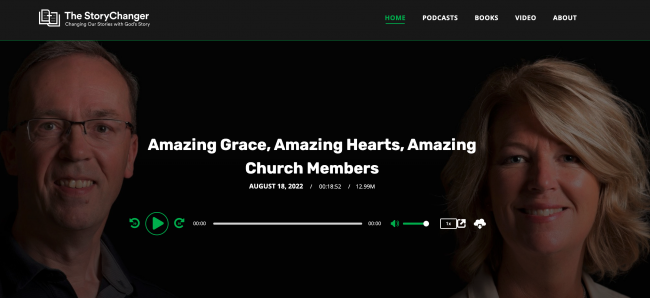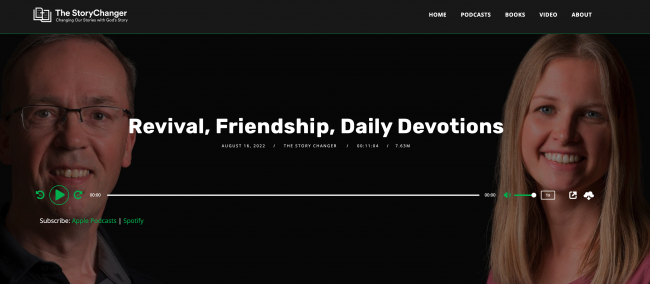
INTRODUCTION
Where are you on the worry timeline?
Friends > School > Grades > Sports > Weight > College> Work > Marriage > Mortgage > Tuition > Health > Children > Children’s friends, etc > Pension > Inheritance .
It doesn’t matter what stage we are at in life, we have worries and anxieties that can dominate our lives. It damages our health, sleep, digestion, joy, our spiritual lives. How do we find peace when we are anxious?

BACKGROUND
God’s Fatherhood brings many desirable blessings into our lives.
- Designer for creatures
- Love for the loveless
- Compassion for the hurting
- Provision for the poor
- Discipline for the disobedient
- Assurance for doubters
- Peace for the anxious
Before we look at God’s teaching on this, I want to make three qualifying statements. First, there’s a difference between spiritual causes of anxiety which have spiritual cures (which is what this passage is all about) and physical causes of anxiety which may need additional medical and practical management.
Second, we need to remember how our temperament affects anxiety. Some of us have a more anxious temperament and others have a more confident temperament. Having a confident temperament does not always mean that you are more dependent on God. Having a fearful temperament does not mean you are less dependent on God.
Third, this is not a once and done exercise. For many of us, it’s a daily battle and may even be a lifelong battle to combat anxiety and fight for peace.
How do we find peace when we are anxious?
I. WORRY STARTS WITH OUR EYES

We have double vision
“No one can serve two masters, for either he will hate the one and love the other, or he will be devoted to the one and despise the other. You cannot serve God and money” (24). If we are trying to serve God and money, we are look in two different directions at the one time and end up cross-eyed. We don’t see money properly and we don’t see God properly.
We have blurred vision
Sometimes we are long-sighted, meaning close up things are blurry. We can’t see close up things clearly. We can’t see that our bodies and our lives are far more important than food and clothing (26).
Sometimes we are short-sighted, and can’t see far away things clearly. Other things blur our vision so that we don’t see God the Father clearly (32).
We have dull vision
God’s kingdom is the brightest realm in the whole universe. Yet, because of wrong priorities, we don’t see it brightly. Our vision of the kingdom is dull, unclear, vague.
CHANGING OUR STORIES WITH GOD’S STORY
What are you looking at? Usually we lose our vision slowly, gradually, unnoticeably. We don’t realize how bad our vision is. But over time, it can deteriorate until we can’t even see that we can’t see. We think our vision is normal when it’s far from normal for a believer.
Have you visited the eye doctor? Jesus is deeply concerned about our eyes. He loves to restore and redirect our vision (Matthew 9:27–30; Mark 8:22–25; John 9:1–7).
WHAT WE SEE
IS WHAT WE FEEL
“How can i get my eyes fixed?”
Our eye doctor has a prescription.
II. PEACE STARTS WITH OUR EYES

Look at your Father (26, 32). Look at his heart (his compassion), look at his hand (what he’s pointing to), look at his head (what he wants us to think about). Then look at his eyes and follow his gaze as he directs you to look at new sights with new eyes.
Look at the birds (26). They don’t sow, reap, store, plan, produce. Yet they get enough from God the Father and sing about it all day long. Are you not more valuable than them? Look at the birds.
Look at your watch (27). Look at the passage of time, the ticking hands, the flashing dots. Have you ever managed to slow that down or speed it up? Look at your watch.
Look at the wild flowers (28-30). Are the flowers working? Are they slaving away to make themselves more beautiful? Look at how God clothes the fields with them, fields which will soon be cut down and harvested. Will he not give you clothes too, you who live far longer? Look at the wild flowers.
Look at your unbelief (30). We don’t like to look at our ugly unbelief, but Jesus calls us to face up to it and look at it. he’s telling us that worry is caused not by our lack of finance but your lack of faith.
Look at unbelievers (31-32). Look at the stress, the worry, the fear that unbelievers experience because they don’t believe in a heavenly father. If you lose peace of mind, you’re just like them, and therefore lose your distinctive Christian witness. Look at unbelievers.
Look at the kingdom (33). Look at the kingdom before you look at anything else. Seek the glory of the King and he’ll make sure everything else will be provided. Look at the beautiful kingdom of God.
Look at the king’s righteousness (33). If this is a reference to the righteous rule of the King, then it’s calling us to trust his just dealings with us. If it’s a reference to his provision of righteousness, then we’re being called to look not at our own imagined righteousness that we try to earn but his real righteousness that he gives us in Christ. Look at the King’s righteousness.
Look at today (34). If you look at tomorrow, you double your worries. God’s given you a daily quota of worries. Don’t look at tomorrow’s worries. If you’re going to look at anything, look only at today’s.
CHANGING OUR STORIES WITH GOD’S STORY
Believe to see. This is not talking so much about our physical eyes of sight, but more our spiritual eyes of faith.
See to feel. The more we see right, the more we will feel right.
BELIEVING IS SEEING
AND SEEING IS FEELING
SUMMARY


A NEW CHAPTER
Gospel. Maybe you are still blind to the Gospel. If so, you have to start with asking Jesus to give you sight of himself so that at least you can begin to get your sight adjusted.
Media. The media is designed to distract, distort, and dull our vision. Remember, what you see is how you feel. Change what you see to change what you feel.
Heaven. One of the reasons I look forward to heaven so much is to be free of anxiety. There we will see as God sees and feel the peace the God feels.
Prayer. Wise and Skillful Eye-Doctor, give me an accurate diagnosis and a powerful prescription so that I can see what you see and therefore get peace for my soul.
DISCUSSION QUESTIONS
1. Where are you on the worry timeline?
2. What do you see that makes you worry?
3. Which of the eye-doctor’s remedies have worked for you in the past?
4. What other helps can you think of for anxiety?
5. What will you change about your media and social media exposure?
6. Who will you introduce to the eye-doctor this week and how will you do it?
PDF OF SERMON NOTES













